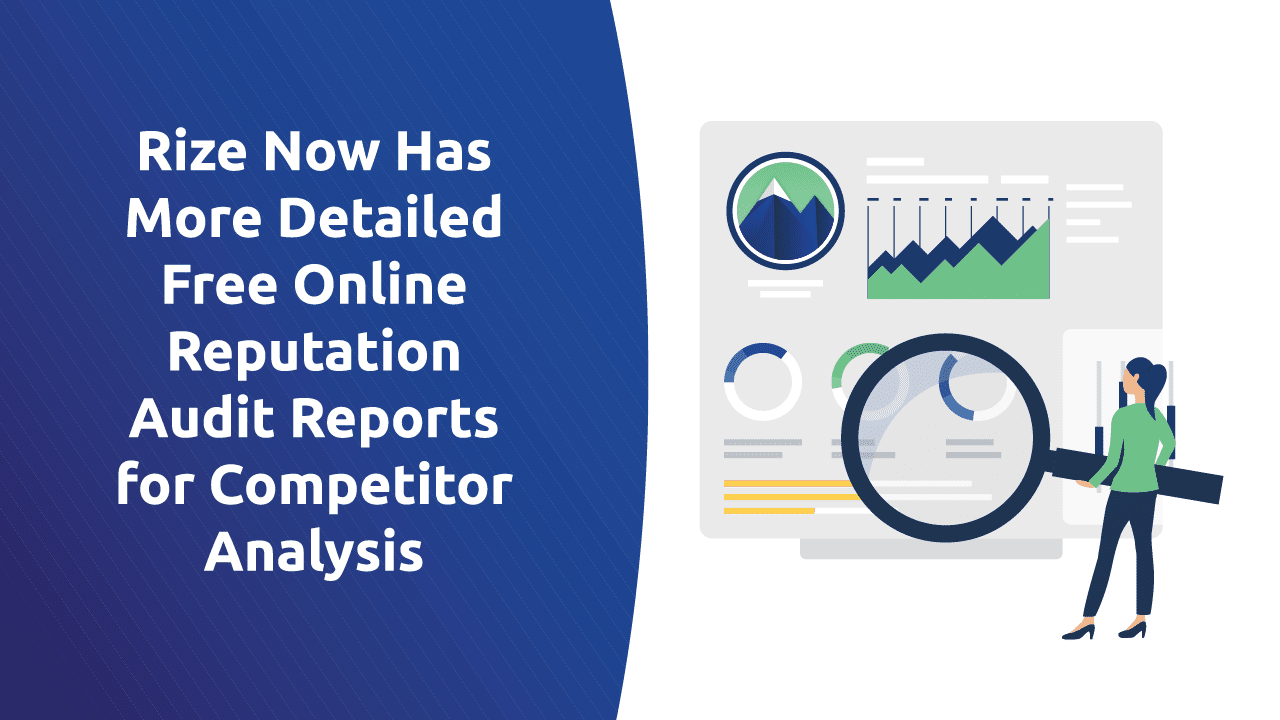

We’re proud to announce that Rize Reviews has more detailed online audit reports for competitor analysis, giving clients greater insight into how they stack up against competitors in terms of online reviews.
Reputation management consultants generally begin a project by onboarding clients. During this time, one of the things they do is analyze brand mentions on social media and review sites. Then, they present the online reputation score to clients.
Even for small and new companies, gathering relevant information is a huge task. So Rize Reviews uses artificial intelligence or AI-powered online reputation management software to go through hundreds of social media and review sites. The generated online reputation reports help the clients and the online reputation management consultant do these things:
So in this article, you will see online reputation management (ORM) audit report samples and how each section helps improve your brand reach and reputation.
Rize Reviews now provides new reputation audit reports with more information. In the following sections, the sample used is an audit of Thrive Internet Marketing Agency.
Do note that the report is only accurate at the time of its writing. Since then, there may be changes with more reviews made for Thrive and its competitors.
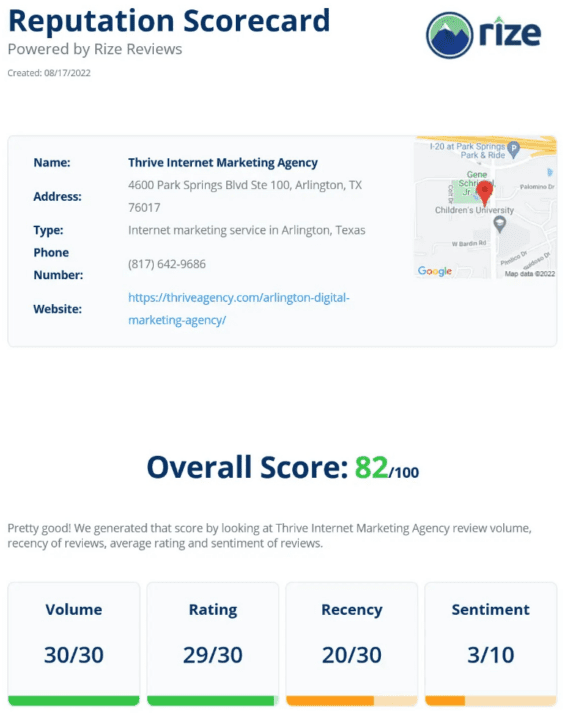
As you can see from the image above, Rize audit reports start with the client’s contact information, followed by the online reputation score.
It is easy to see if there is a need to improve or manage online reputation. In Thrive’s case, while they have a healthy amount of reviews, they need newer ones. But before delving into specifics, let’s look at what each score entails
Volume refers to the number of reviews posted on social media platforms such as Facebook and various review sites. It matters to online reputation marketing because having more correlates to increased conversions.
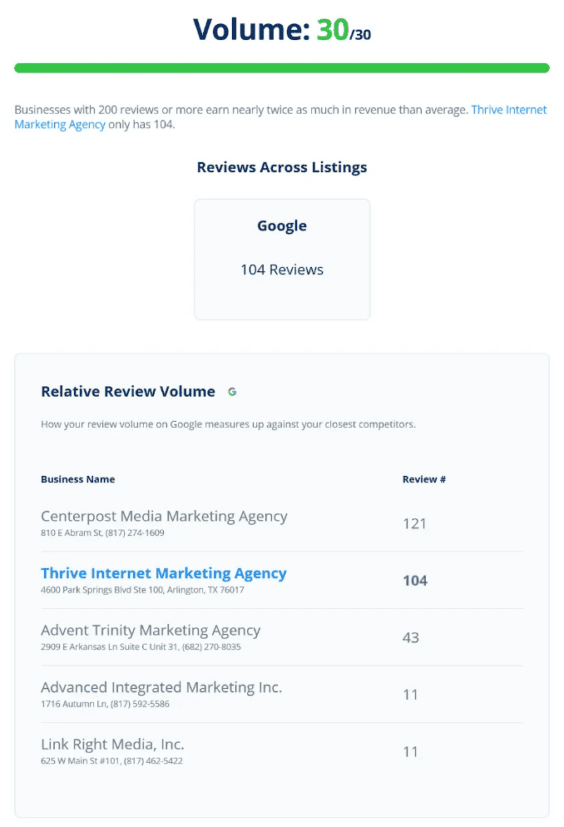
Rize online reputation management software looks for data from over a hundred sources. In this example, Thrive scored 30/30 because they have at least 100 reviews. The competitor analysis tools also display the closest local competitors.
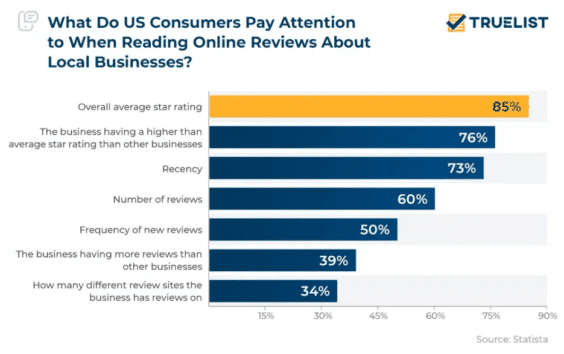
Scoring 30/30, though, does not mean there is no room for improvement. Here is one of the most common online reputation management tips to enhance your digital marketing strategies.
Keep collecting positive reviews. While more does not correlate to better when the volume is already in the hundreds, it can help improve conversion rates. So at least strive to have 200 or more.
In the U.S., around 60 percent of consumers pay attention to the number of reviews when researching local businesses. Psychologically, consumers get the impression that companies with more reviews have more customers, evoking a sense of authority and trustworthiness.
Ask reputation management consultants for the best online reputation management tips, and one thing they will say is to work on getting high star ratings. So in Rize’s free online reputation reports, you see your average star ratings and that of competitors.
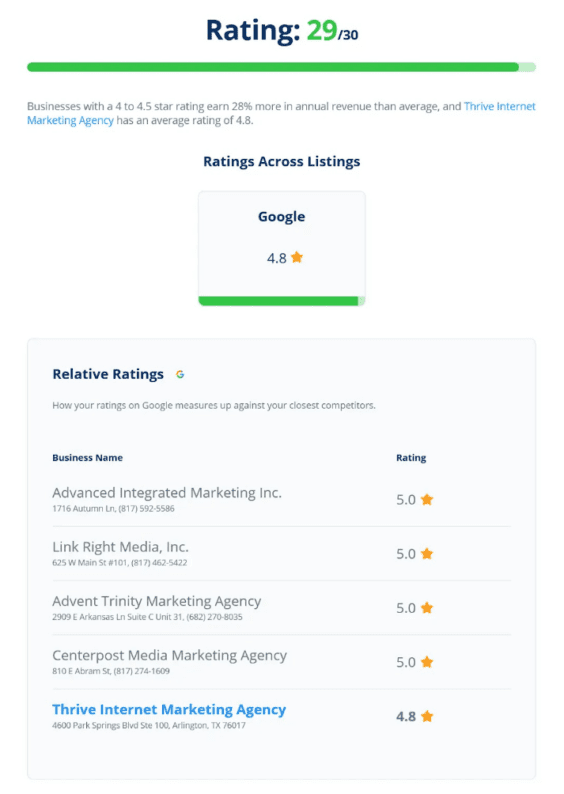
A large number of consumers use Google Reviews to research a brand. For many, star ratings are more important than the number of reviews. In fact, 80 percent say 4- to 5-star ratings are important and greatly influence their decision to use a business.
Reviews and star ratings are integral in how brands manage online reputation as part of their digital marketing strategy. Rize understands this and provides rating scores in their online reputation management tools.
Recency refers to the freshness of reviews. Not many businesses understand its importance, but it does, and its impact is enormous.
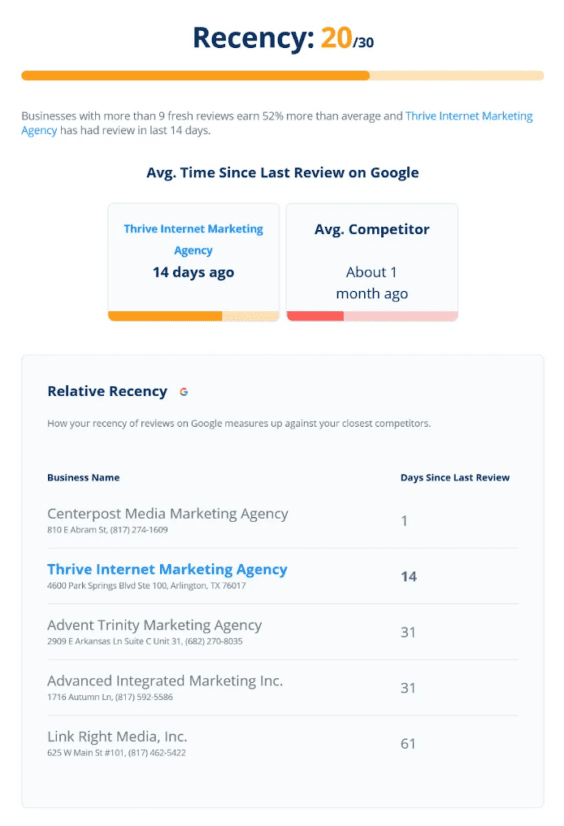
Up to 73 percent of U.S. consumers pay attention to the recency of reviews. In other words, their interest wanes as the reviews get older. After all, who wants to read “old news.”
| The Recency of Reviews | Percentage of Consumers Impacted by the Recency of Reviews |
| Within the past two weeks | 22% |
| Within the past month | 26% |
| Within the past three months | 21% |
| Within the past six months | 12% |
| Within the past year | 11% |
| Recency of reviews does not impact consumer decision | 7% |
In developing your online reputation monitoring and marketing strategies, think about the 69 percent of consumers who said reviews within the past three months or less impacted their decision to transact with a local business.
Looking at the competitor analysis for recency, you can get an idea of where your business stands. In the example, Thrive ranked second despite having a poor recency score. So this is one area where they need to improve.
Although online reputation monitoring for recency is not easy, there are plenty of online reputation management tools you can use to automate the process. Some small-to-medium-sized businesses, though, may not have the human resources. In this case, they can hire a third-party online reputation management company to capitalize on their expertise.
Rize Reviews’ reputation audit report has a section called Sentiment. Here, they show how consumers feel about your brand.
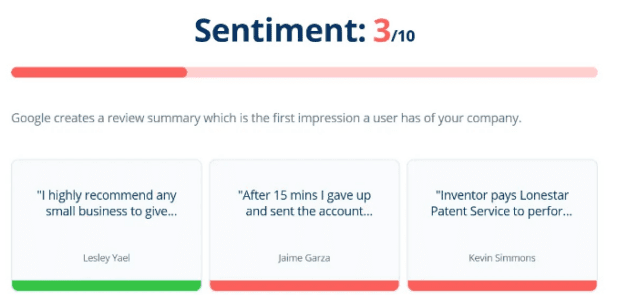
Rize Reviews online reputation services gather sentiments from Google Summaries. These review snippets usually contain three abbreviated sentences taken from user reviews.
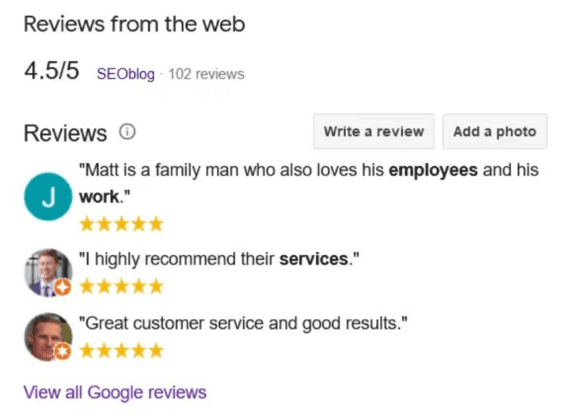
Google summaries are auto-generated and may sometimes appear on search engine results pages (SERPs). It is a huge plus if you have a 4.5 to a 5-star average rating. But if your average star rating is lower, Google almost always shows at least one negative sentiment. That is why online reputation monitoring is crucial so you can use some strategies to improve customer perception of your brand.
When you manage online reputation, one thing you can do to improve your image is to increase reviews. Here are some tips on how you can do that.
Before an online reputation management service professional can develop a strategy, an audit must first be run . The latest online reputation report Rize provides for free now contains more details.
Essentially, the reports tell you two things:
For more information on Rize’s online reputation services, call 866.325.0303 to contact a reputational expert who can give you a free consultation .
Robert is a Demand Generation Content Writer at Thrive. Since retiring from business, he pursued his childhood passion for writing. If he is not creating content to drive people to your site, you can find him chilling and watching world news.